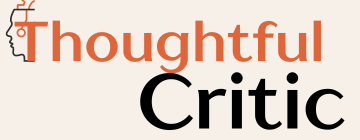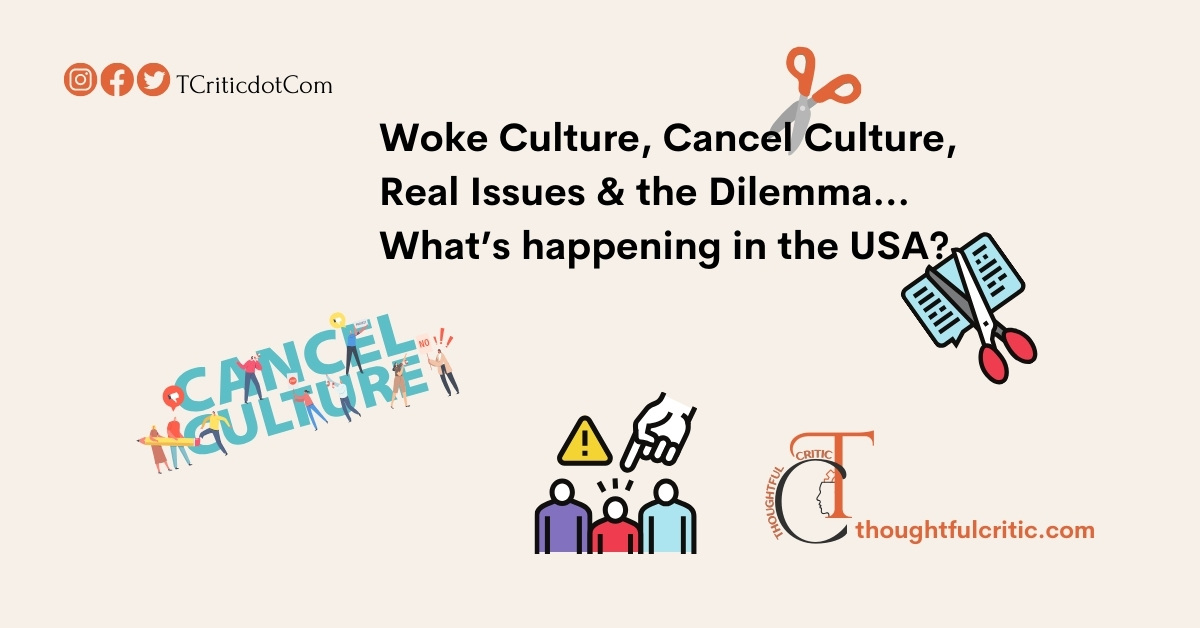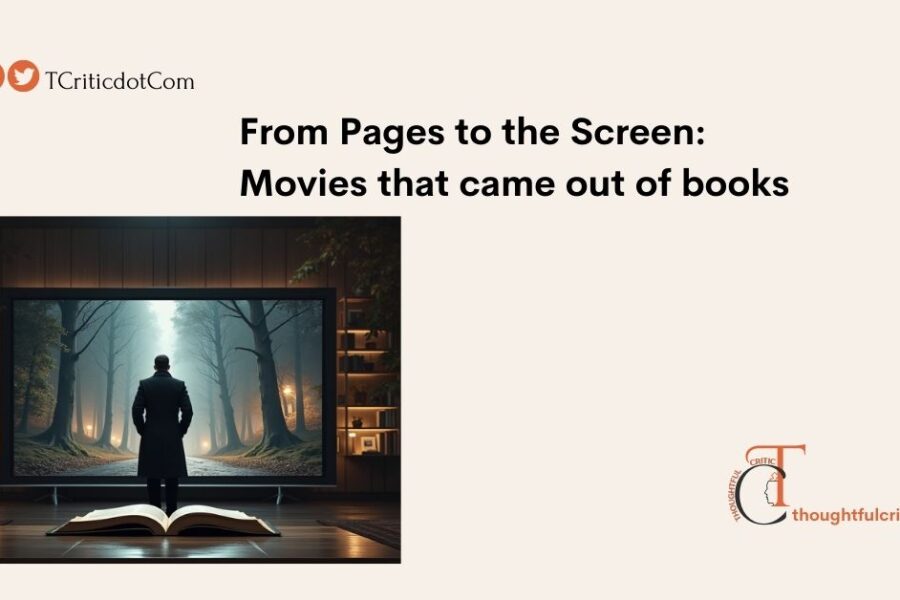Woke culture is a supposed social and political movement emphasising awareness of social and racial justice issues, particularly those affecting marginalised communities. The term “woke” originated in African American Vernacular English (AAVE) and was popularised by the Black Lives Matter movement in 2014. It has since expanded to encompass a broader range of progressive and social justice issues.
Critical aspects of woke culture include:
- Social awareness: Being “woke” means being aware of and actively engaging with social and political issues, particularly race, gender, and sexuality. This includes recognising and challenging systemic racism, sexism, and other forms of oppression.
- Intersectionality: Woke culture acknowledges the interconnected nature of social identities and how they intersect to create unique experiences of oppression and privilege. This understanding is crucial for addressing systemic inequalities and promoting social justice.
- Activism: Woke culture often involves actively working to dismantle oppressive systems and promote social justice through various forms of activism, such as protests, online campaigns, and community organising.
- Language and communication: Woke culture emphasises the importance of using inclusive language and avoiding language that reinforces stereotypes or perpetuates oppression. This includes using gender-neutral pronouns, avoiding ableist language, and being mindful of cultural appropriation.
Woke literature and media often explore themes related to social justice, identity, and intersectionality. Some examples of woke literature include:
- “The Hate U Give” by Angie Thomas: This novel follows a young Black girl who witnesses the fatal shooting of her unarmed friend by a police officer and becomes an activist in her community.
- “The Color Purple” by Alice Walker: This Pulitzer Prize-winning novel explores the lives of African American women in the early 20th century and their struggles against racism, sexism, and poverty.
- “The Handmaid’s Tale” by Margaret Atwood: This dystopian novel explores themes of gender, power, and oppression in a patriarchal society.
- “The Brief Wondrous Life of Oscar Wao” by Junot Díaz: This Pulitzer Prize-winning novel explores the experiences of a Dominican-American family and their struggles with identity, racism, and the legacy of dictatorship.
Woke culture has significantly impacted contemporary social and political discourse, encouraging greater awareness and action on issues of social justice. However, it has also been criticised for promoting “cancel culture” and stifling free speech.
Woke culture and literature have faced severe criticism for several reasons. Critics argue that they promote a “cancel culture” where individuals are publicly shamed and ostracised for expressing views that deviate from the “woke” narrative. This can lead to a stifling of free speech and open dialogue on critical social issues.
Some of the main criticisms of woke culture include:
- Over-simplification of complex issues: Critics argue that woke culture often reduces complex social issues to binary thinking, ignoring the nuances and complexities of the problems. This can lead to a lack of understanding and ineffective solutions.
- Moral absolutism: Some critics argue that woke culture promotes a moral absolutism that leaves little room for discussion or disagreement. This can lead to a hostile and unproductive environment where people fear expressing their opinions or engaging in meaningful dialogue.
- Inconsistency: Critics point out that woke culture can be inconsistent in its application, with some individuals or groups being held to different standards than others. This can lead to accusations of hypocrisy and undermine the movement’s credibility.
- Lack of humour: Some critics argue that woke culture is overly severe and lacks humour, making it challenging to engage with and potentially alienating potential allies.
- Misguided activism: Critics argue that woke culture can sometimes lead to misguided activism, where individuals focus on performative gestures or “virtue signaling” rather than working towards meaningful change.
The dark sides of the “woke” attitude include the potential for self-righteousness, which can lead to an unwillingness to engage in productive dialogue or consider alternative perspectives. This can create an echo chamber where individuals only engage with those who share their beliefs, limiting their exposure to diverse viewpoints and hindering their ability to grow and learn.
Woke culture has become a butt of jokes in some circles due to its perceived excesses and inconsistencies. Some critics argue that it has become a form of virtue signalling, where individuals use their “wokeness” to gain social capital and appear morally superior to others. This can lead to a backlash against the movement and undermine its credibility.
In conclusion, it has also faced significant criticism for its shortcomings. Engaging in open and honest dialogue about these issues is crucial, recognising the complexities and nuances of social problems and working towards meaningful solutions.
Relationship with “Cancel Culture”:
Cancel culture is a modern form of ostracism in which someone is thrust out of social or professional circles—whether online, on social media, or in person. Those subject to this ostracism are said to have been “cancelled.” The expression “cancel culture” has mostly negative connotations and is commonly used in debates on free speech and censorship.
The relationship between “woke culture” and “cancel culture” lies in their shared focus on social justice and activism. Both movements aim to raise awareness and address inequality, discrimination, and oppression issues. However, they differ in their methods and outcomes.
“Woke culture” emphasises the importance of being aware of and actively engaging with social and political issues, particularly race, gender, and sexuality. It promotes activism and encourages individuals to challenge systemic oppression and work towards a more inclusive society.
On the other hand, “cancel culture” is often criticised for its approach to activism, which can involve public shaming and ostracisation of individuals who express views that deviate from the “woke” narrative. Critics argue this approach stifles free speech and open dialogue on critical social issues.
And now, read this too.
Examples of Woke Culture Going Overdrive and Mutating into a Cancel Culture of Disregard for Truth
- The Evergreen State College Controversy: In 2017, Evergreen State College in Washington became the centre of a controversy when a professor was accused of racism for opposing a campus event that asked white students to leave campus for a day. The situation escalated, with students protesting and demanding the professor’s resignation. This incident highlights how pursuing social justice can sometimes lead to disregarding open dialogue and the right to express differing opinions.
- The “Kneeling” Controversy in the NFL: In 2016, NFL player Colin Kaepernick began kneeling during the national anthem to protest police brutality and racial inequality. While initially seen as a form of activism, the act of kneeling became a point of contention, with some viewing it as disrespectful to the flag and the country. The controversy led to Kaepernick being effectively “canceled” from the NFL, as no team would sign him after he became a free agent in 2017.
- The J.K. Rowling Controversy: In 2020, “Harry Potter” author J.K. Rowling faced backlash for her comments on transgender issues, which many viewed as transphobic. The controversy led to calls for boycotts of her work and the “cancelling” of her as an author. While the debate around her views was necessary, some argue that the response became disproportionate and ignored the issue’s complexity.
- The “Cultural Appropriation” Debate: In recent years, there has been an increased focus on cultural appropriation, with some individuals being “cancelled” for wearing or using elements from other cultures in their work or personal lives. Critics argue that this approach can stifle creativity and cultural exchange and often lacks nuance in understanding the difference between appropriation and appreciation.
- The “Political Correctness” Debate: The push for political correctness has sometimes led to disregarding truth and open dialogue. For example, in 2017, a Google engineer was fired for writing a memo that questioned the company’s diversity policies and suggested that biological differences between men and women could partially explain the gender gap in the tech industry. The engineer’s firing sparked a debate about the importance of free speech and the potential dangers of an overly sensitive and intolerant culture.
These examples illustrate how the pursuit of social justice and the fight against discrimination can sometimes lead to unintended consequences, such as disregarding truth and open dialogue. It is crucial to balance promoting inclusivity and ensuring that different perspectives are heard and respected.
Friendly Reader for Thoughtful Critic




